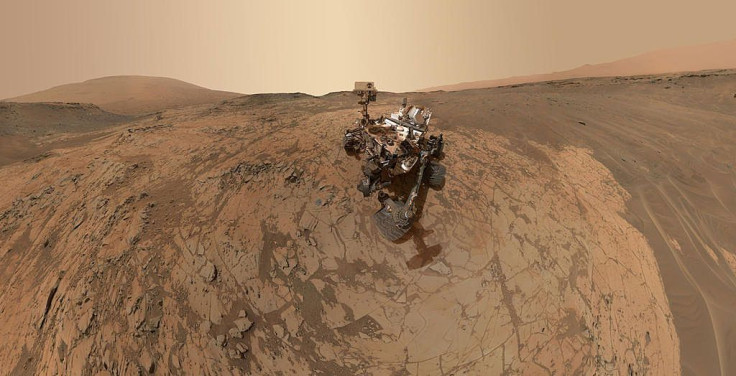Why NASA Chief Believes Alien Life May Soon Be Discovered In Mars

NASA chief Jim Bridenstine believes that we're close to discovering alien life.
The search for life beyond Earth has become one of NASA's priorities, with the space agency even creating a new branch dedicated to the endeavor. During the announcement of the Mars Opportunity Rover last week, Bridenstine explained that recent discoveries have them optimistic about the success of finding alien life in the near future.
Bridenstine specifically pointed out Mars as one of the most promising locations that may be hosting life forms. Three Mars discoveries made by NASA's Curiosity rover and the European Space Agency's Mars Express orbiter seem to support his belief that the Red Planet could be harboring aliens.
First, complex organic molecules, the carbon-based building blocks of life, have been found on the Martian surface. Second, he noted the fact that potentially biogenic gas methane varies seasonally in at least some locales. And lastly, he said that under Mars' south pole is a huge lake of liquid water, which is a necessity for any lifeform.
The first two findings were discovered by Curiosity, while the last one was found by the ESA's Mars Express orbiter.
The NASA chief explained that while these findings do not necessarily guarantee that alien life forms are lurking on or beneath Mars' surface, they do increase the probability of them existing.
"All of these things collude to say there is a lot we need to learn, and friends, we're going to do it quickly," Bridenstine said at the Feb. 13 event held at NASA's Jet Propulsion Laboratory in Pasadena, California, according to Space.com.
NASA's Opportunity and its twin, Spirit, played important roles in the search for life on Mars and provided information that helped scientists understand the Red Planet's history. As Spirit was declared dead in 2011 and Opportunity on Feb. 13, their cousin, NASA's Mars 2020 rover, will soon continue the search.
With a design based heavily on NASA's Curiosity, the Mars 2020 rover will be launched in July next year and is set to arrive on Mars by February 2021, barring any problems. The rover is set to land inside the 28-mile-wide (45 kilometers) Jezero Crater, where a deep lake once existed, to continue the hunt for evidence of any Martian lifeforms that may have once called it home.
Mars 2020 is also set to collect samples from Mars to bring back to Earth for scientists to study. Bridenstine explained that while the retrieval mission has not yet been given a date, NASA is determined to get this done.
"We're going to be able to look at samples and determine if there's a biosignature in there," Bridenstine said. "The goal is to discover life on another world; that's what we're trying to achieve. And because of so many great people in this room, friends, we are well on our way to doing that."
© Copyright IBTimes 2024. All rights reserved.





















